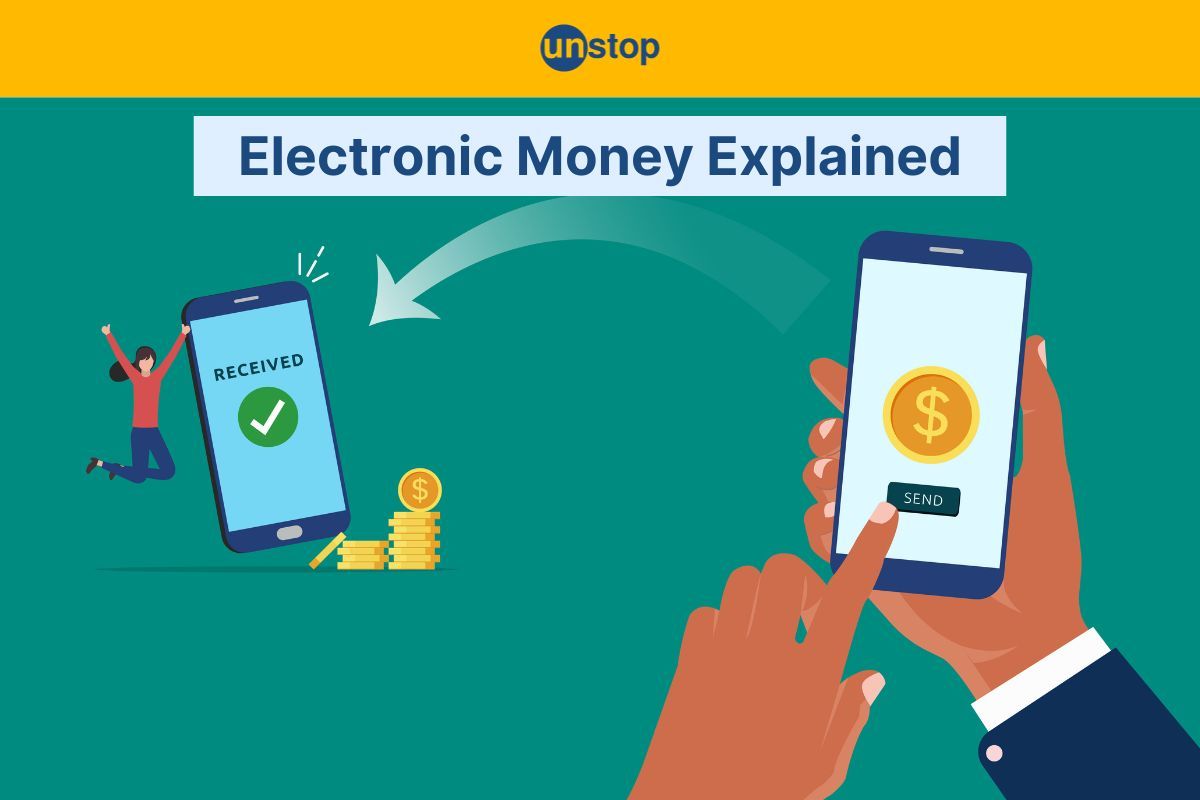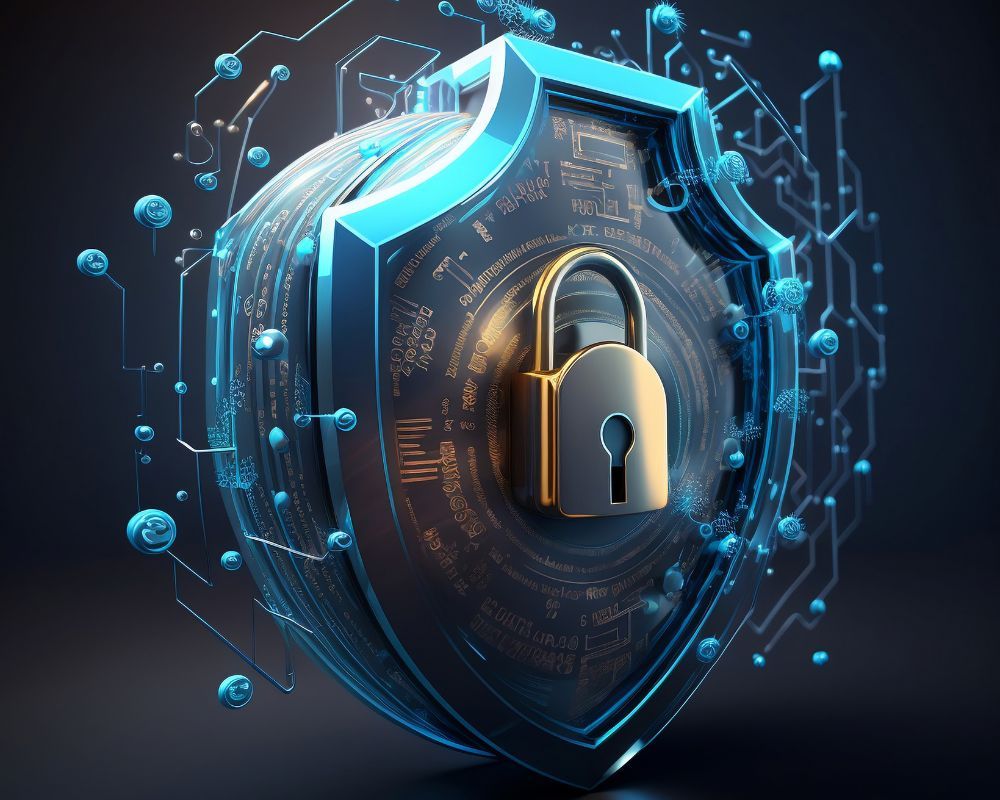- Definition Of Electronic Money & Classification
- Examples Of Electronic Money
- Pros Of Using Electronic Money
- Cons Of Using Electronic Money
- Security Measures For Electronic Money
- Frequently Asked Questions (FAQs)
Electronic Money: All You Need To Know & Be Secured Using It

Electronic money has completely transformed the way we make payments and conduct financial transactions in today's increasingly digital world. With advancements in technology, electronic money has gained immense popularity worldwide due to its convenience, speed, and enhanced security compared to traditional cash-based transactions. This digital form of currency operates outside the traditional banking system and allows individuals and businesses to engage in seamless payment transactions across borders. As a result, electronic money institutions have emerged as key players in the modern monetary system.
Definition Of Electronic Money & Classification
Electronic money, often referred to as eMoney, is a form of digital currency that exists electronically on devices or systems. Unlike physical cash, it is stored in a digital format and can be used for various purposes such as online shopping, bill payments, and peer-to-peer transfers.
eMoney holds equivalent value in the digital realm and can be accessed through electronic devices like smartphones or computers. It provides a convenient alternative to carrying physical cash and offers ease of use in an increasingly digital world. Electronic money, also known as eMoney, can be classified into two types:
Centralized Electronic Money
Centralized eMoney form of digital currency is regulated and managed by a central authority like a bank or government institution. These institutions maintain control over the creation, distribution, and redemption of electronic money. Centralized eMoney often operates through depository institutions that provide an account function for users to store their digital funds.
Decentralized Electronic Money
Decentralized eMoney functions on blockchain technology. It eliminates the need for intermediaries like banks and governments by operating on a distributed ledger system. Transactions made with decentralized eMoney are verified by network participants rather than a central authority. This type of electronic money offers increased security and transparency due to its decentralized nature.
Examples Of Electronic Money
Cryptocurrencies like Bitcoin are prominent examples of electronic money. These decentralized digital currencies operate on blockchain technology and allow users to make secure transactions without intermediaries like banks. Bitcoin has gained significant popularity as an alternative investment asset as well as a medium for conducting online transactions.
Payment platforms such as PayPal also fall under the category of eMoney. PayPal enables users to link their bank accounts or credit cards to their accounts, providing them with a digital wallet that can be used for online payments. It offers enhanced security features and buyer protection policies, making it a trusted platform for electronic transactions.
Other examples of eMoney include digital wallets like Apple Pay and Google Pay, which allow users to store their payment information securely on their smartphones. These wallets can be used for contactless payments at physical stores or online purchases, providing a convenient and secure method of payment.
Pros Of Using Electronic Money
Electronic money offers numerous advantages in today's digital age. From convenience and speed to enhanced security and global accessibility, electronic money has revolutionized the way we make transactions and manage our finances.
Eliminates The Need For Carrying Physical Cash Or Cards
One of the major benefits of using electronic money is that it eliminates the need to carry physical cash or cards. With electronic money, you can make payments using your smartphone, tablet, or computer.

Image credit: Freepik
Gone are the days when you had to worry about losing your wallet or forgetting your credit card at home. Now, all you need is your device and an internet connection to make transactions.
Provides Quick & Convenient Payment Options
Electronic money offers quick and convenient payment options for both online and offline purchases. Whether you're shopping online or making a purchase at a physical store, electronic money allows for seamless transactions. Instead of fumbling with cash or waiting in line to swipe your card, you can simply tap on your device or scan a QR code to complete the payment. This not only saves time but also provides a hassle-free experience.
Enhanced Security Through Encryption Techniques
Electronic money transactions often offer more protection than traditional methods. Digital wallets use encryption techniques to safeguard your financial information during transactions. These encryption methods ensure that your personal data is kept secure and confidential. Many eMoney platforms have built-in fraud detection systems that monitor suspicious activities and notify users in case of any unauthorized access attempts.
Rewards Programs & Cashback Incentives
Another advantage of using electronic money is the availability of rewards programs and cashback incentives offered by many eMoney platforms. These programs allow users to earn points or receive cashback on their purchases made through digital wallets. For example, some platforms may offer discounts on specific products or services when using their app for payments. This not only provides economic efficiency but also encourages users to continue utilizing electronic money as their preferred payment method.
Cons Of Using Electronic Money
While electronic money offers many advantages, there are also some drawbacks to consider. Let's explore the cons of using electronic money.
Vulnerability To Cyber Threats
One of the main concerns with electronic money is its vulnerability to cyber threats such as hacking or identity theft. As transactions occur online, there is always a risk that malicious individuals may try to gain unauthorized access and steal sensitive information. This can lead to financial loss and potential damage to one's personal or financial reputation.
Limited Acceptance By Businesses
Another drawback of electronic money is that not all businesses accept electronic payments. While many establishments have embraced digital payment methods, there are still some places where cash or traditional card payments are the only options available. This limitation can be frustrating when trying to make a purchase at a place that does not accept electronic forms of payment.
Technical Glitches & System Failures
Technical glitches or system failures can also pose challenges when using electronic money. While rare, these issues have the potential to disrupt access to funds temporarily. Imagine being in a situation where you urgently need to make a payment but cannot do so due to an unforeseen technical problem. It can be inconvenient and frustrating, especially if you rely solely on electronic money for your transactions.
Despite these cons, it's important to note that the benefits often outweigh the drawbacks for many people who choose to use electronic money regularly. However, it's crucial to remain vigilant and take necessary precautions while engaging in digital transactions.
Security Measures For Electronic Money
Electronic money is becoming increasingly popular, and with its rise comes the need for robust security measures to protect users' transactions and personal information.
Strong Passwords, Two-Factor Authentication & Biometric Verification
To enhance the security of electronic money accounts, it is important to implement strong passwords, utilize two-factor authentication (2FA), and employ biometric verification methods. Strong passwords should be unique and contain a combination of letters, numbers, and special characters.

Image credit: Freepik
By using 2FA, users are required to provide an additional piece of information, such as a code sent to their mobile device, along with their password. Biometric verification methods like fingerprint or facial recognition add an extra layer of security by ensuring that only authorized individuals can access the account.
Regular Software Updates & Antivirus Programs
Regularly updating software on devices used for electronic money transactions is essential in protecting against malware attacks. These updates often include security patches that address vulnerabilities identified by developers. Installing reputable antivirus programs helps detect and remove any malicious software that may compromise the security of electronic money accounts.
Vigilance Against Phishing Attempts
Being vigilant about suspicious emails, links, or requests for personal information is crucial to avoid falling victim to phishing attempts. Phishing is a fraudulent practice where scammers impersonate legitimate organizations to trick individuals into revealing sensitive data such as usernames, passwords, or credit card details. Users should always verify the authenticity of emails or links before providing any personal information.
Secure Payment Gateways With Encryption
Utilizing secure payment gateways that encrypt sensitive data adds an extra layer of protection when conducting electronic money transactions. Encryption ensures that the information shared between the user's device and the payment gateway remains confidential and cannot be intercepted by unauthorized parties. Look for websites or apps that have SSL/TLS certificates displayed in the address bar as an indication of secure encryption.
Caution When Sharing Account Details
To avoid becoming a victim of online scams, it is essential for users to exercise caution when sharing their electronic money account details or making transactions on unfamiliar platforms. Users should only provide their information on trusted and secure websites or mobile applications. It's important not to share personal details over unsecured Wi-Fi networks or with unknown individuals claiming to be representatives of electronic money providers.
Also regularly reading up on news articles, blogs, or official announcements from electronic money providers can help users stay updated on potential risks and learn how to protect themselves better.
By implementing these security measures for electronic money transactions, users can significantly reduce the risk of unauthorized access or fraudulent activities associated with their accounts.
Conclusion
In conclusion, electronic money has emerged as a significant alternative to traditional forms of payment. Its convenience, speed, and accessibility have made it increasingly popular in today's digital age. With the ability to make transactions anytime, anywhere, electronic money offers a level of convenience that is unparalleled by cash or physical payment methods. To ensure a secure experience while using electronic money, it is important to follow recommended security practices such as regularly updating software and passwords, avoiding suspicious links or emails, and monitoring account activity closely. By adopting these precautions, users can mitigate potential risks associated with online transactions.
Frequently Asked Questions (FAQs)
1. What are the advantages of using electronic money?
Electronic money offers numerous advantages such as convenience, speed, and accessibility. It allows users to make transactions anytime and anywhere without the need for physical currency or banking infrastructure. Electronic money often provides enhanced security features compared to traditional payment methods.
2. Are there any disadvantages to using electronic money?
While there are many benefits to using electronic money, there are also some drawbacks. These include potential privacy concerns due to increased data collection by service providers and the risk of cyberattacks or online scams targeting users' accounts.
3. How can I protect myself from online scams related to electronic money?
To protect yourself from online scams involving electronic money, one must be cautious when sharing personal information online. Avoid clicking on suspicious links or providing sensitive information through unsecured websites or emails. Regularly monitor your account activity for any unauthorized transactions and report any suspicious activity immediately.
4. Can I use electronic money for online shopping?
Yes, electronic money is widely accepted for online shopping. Many e-commerce platforms and websites provide options to pay using electronic money, such as mobile wallets or digital payment services. However, it is essential to ensure that the platform or website you are using is reputable and secure.
5. Is my money safe when using electronic money?
Most reputable electronic money providers employ advanced security measures to protect users' funds. However, it is important to take additional precautions on your end, such as setting strong passwords, enabling two-factor authentication, and regularly monitoring your account activity. By following these best practices, you can enhance the safety of your funds when using electronic money.
Suggested reads:
- Budget Deficit: Definition, Types, Effects & Prevention
- Economies Of Scope: Definition, Benefits, Strategies & Examples
- Consumer Surplus: Definition, Calculation, Examples & Limitations
- Capitalist Economy: Definition, Evolution, Features & Merits
- What Is Trade Union? Learn Its Definition, Evolution, Types & Functions
Instinctively, I fall for nature, music, humor, reading, writing, listening, traveling, observing, learning, unlearning, friendship, exercise, etc., all these from the cradle to the grave- that's ME! It's my irrefutable belief in the uniqueness of all. I'll vehemently defend your right to be your best while I expect the same from you!
Login to continue reading
And access exclusive content, personalized recommendations, and career-boosting opportunities.
Subscribe
to our newsletter















Comments
Add comment